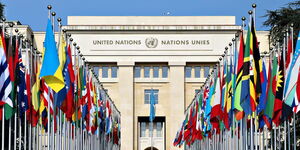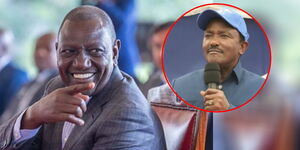Businessman Humphrey Kariuki has become the first native African to be honoured as a Patron of Nature by the International Union for Conservation of Nature (IUCN).
Revealing the news on Friday, October 10, Kariuki expressed his gratitude to IUCN after the global body recognising him for his contribution to conservation efforts.
“I am deeply honoured to join IUCN as a Patron of Nature, the first African to hold this role,” Ndegwa noted.
“It is a privilege and responsibility to champion Africa’s natural wealth and ensure nature remains at the heart of global priorities,” he added.
Patron of Nature
Being a Patron of Nature at IUCN is one of the organisation’s highest honorary titles. It is bestowed upon distinguished individuals who have demonstrated extraordinary commitment, leadership, and influence in advancing global conservation efforts.
It recognises individuals who have made longstanding, impactful contributions to nature conservation, whether through policy, philanthropy, science, or advocacy.
In his role, Kariuki is expected to use his public profile, networks, and influence to promote IUCN’s mission of conserving biodiversity and promoting sustainable use of natural resources.
Also, Kariuki’s new global role requires him to help raise awareness and mobilise resources for conservation initiatives.
He will also often attend major IUCN events like the World Conservation Congress and engage in high-level advocacy.
There are usually very few Patrons of Nature at any given time, making it a highly prestigious title comparable to an honorary doctorate or United Nations Goodwill Ambassador role in the conservation field.
Current notable Patrons of Nature include Prince Albert II of Monaco, Prince Carl Philip of Sweden, Her Majesty Queen Noor Al Hussein of Jordan, and Dona Bertarelli.
Kariuki becomes the second Kenyan to become a Patron of Nature after the late environmentalist Richard Leakey.
Kariuki is best known for his leadership of the Mount Kenya Wildlife Conservancy (MKWC), which is at the heart of the Mountain Bongo breeding & rewilding programme, habitat restoration, and community education.
About IUCN
IUCN was founded in 1948, before many global environmental bodies existed.
It is a membership union that includes governments, NGOs, and experts, making it a unique structure that combines public and civil society sectors.
Also, it operates independently, with its own constitution, governance, and funding sources.
Its headquarters are in Gland, Switzerland, but it has regional offices in Africa (Kenya), Asia (Thailand), Oceania (Fiji), Europe (Belgium), and the Americas (United States).












